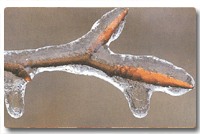 |
|
This course provides diverse information for horticultural crops. Domestic and international markets and trends, classification, identification and characteristics
of each crop, nutritional and flowering physiology, management techniques, and processing and marketing of horticultural crops will be covered. Field tour will provide the student with the understanding for production and marketing fields. |
| |
 |
|
This course is designed to offer the undergraduate student a general background in the basic principles of seed and vegetative propagation as they apply to various crops. With the concepts of seed development, germination, and dormancy, techniques of seed production and propagation will be covered. Biological background and techniques of vegetative propagation, such as cutting, grafting, and layering will also be covered. Furthermore, this course provides up-to-date propagation methods for important crops. |
 |
 |
This course is designed to offer the graduate student a general background in the principles of tree growth and development as they apply to various fruit crops. This includes structure, physiology, and functions of various organs, orchard management, nursery practices, and fruit harvest and utilization. Characteristics of important fruit tree species and cultivars will also be described. | |
 |
|
This course provides the advanced theory and practices in fruit crop production. This includes cultural and environmental control of growth and development, dormancy, flowering, and fruit setting. Current papers on fruit tree physiology and breeding will be discussed. Writing and presentation of scientific papers related to pomology will be assigned to each student. |
 |
 |
This course provides physiological and biochemical information for environmental stresses on horticultural crops. This deals with the responses of horticultural crops and their defense mechanisms to various environmental stresses including chilling, freezing, drought, high salt, flooding, heavy metal, and air pollution. Perception and transduction of environmental stress signal, and subsequent gene expression will also be described. | |
 |
|
This course is designed to provide the graduate student with presentation and discussion experience in horticultural science including cultivation, physiology, ecology, breeding, molecular biology, postharvest management, and environmental control for protected culture. Writing and presentation of special topic related to horticultural science will be assigned to each student. Research planning, method establishment, result interpretation, and presentation using various multi-media tools will be experienced and discussed. |
| |